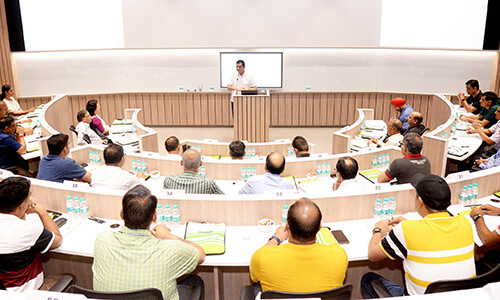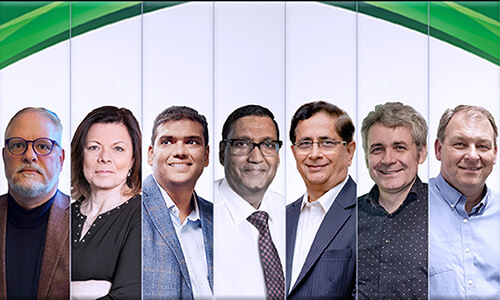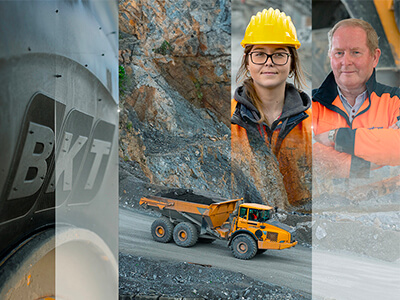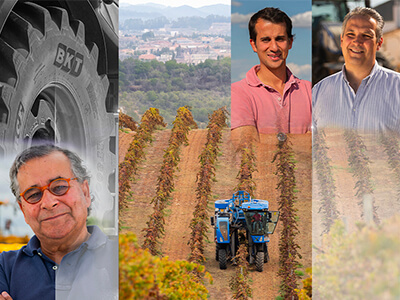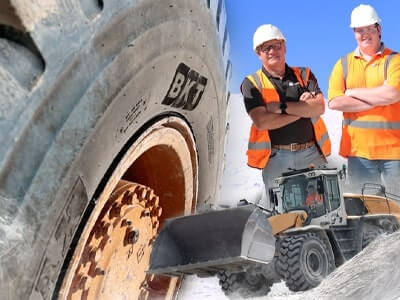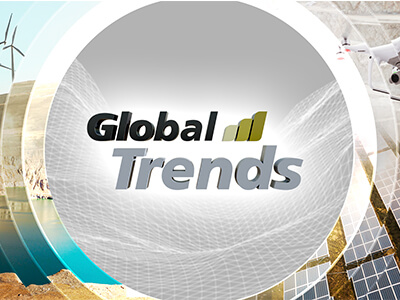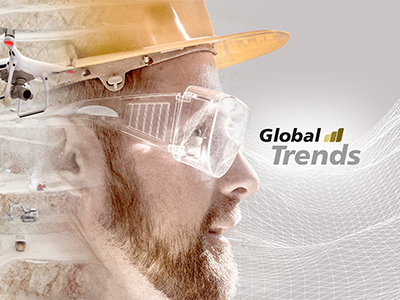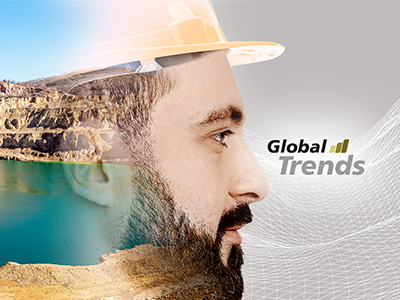Thomas talked of the importance of recycling. It’s a great topic for our second guest. He is the Director of Mining at Nth Cycle, a technology start-up that aims to solve a growing problem: how do we adopt our breakthrough technologies - including electric vehicles that rely on complex battery chemistry, wind turbines and consumer electronics - without the monetary and environmental cost associated with extracting metals and minerals?
Alexander Allen, please come and join us on Global Trends!
Alexander, warm welcome to the show.
Hi. Thank you for having me.
Now, we’re keen to hear more – Where does your technology fit in solving this problem?
Well, thanks to your team for having me today. Nth Cycle was created when we identified the need for new means to provide for the ever-increasing demand for critical metals. We are looking to redefine how we extract metals, and we use metals including those that are already in circulation.
Our company was named because wanted to keep critical metals in circulation forever, we are using them for an N number of times. Our CEO saw that there was a problem with the energy transition; currently extraction and refining require a huge amount of energy through large scale and unsustainable processes.
Our goal is to redefine metal extraction by localizing our process and reducing the amount of energy used in refining those metals. Whether we take is from the ground in traditional mining or we recycle – which we call upper mining – we can only find ourselves shipping materials long distance overseas for further refining.
Our core technology is called the Oyster and uses a process we have named ‘electro-extraction’: this essentially combines seven refining stages to one and allows to target and extract specific metals to produce high purity products.
Wow! That’s incredibly exciting: so you are raising the quality, origins and environmental credentials of these important metals. Is that right?
Yes, exactly. At the core of this is understanding where all these metals are sourced. For example, currently nearly 85% of the nickel that is being used for the energy transition is sourced from Indonesia, which is then refined in China. This creates concerns for Western users due to supply security; the distance the metal is being transported and as you say the environmental and social credentials are procuring that metal. This is a similar story for cobalt as well; this is led by the US and EU saying we need to promote transparency, sustainability and security to our supply chains.
Hitting the target on political and environmental scores, but what about economics?
Well, our system can be deployed on site at modular scale, and it can be on cost parity with the large facilities that are centralized overseas. Our business model is fairly simple – we generally look at own and operate our assets and then charge a fee to our partners to process the materials. We create close loop supply chains while providing reductions in transportations, supply chain timing and of course greenhouse gas emissions.
All this while upgrading commercial facilities to identify new areas of monetization including waste streams.
Excellent. Does this present an opportunity to develop more, but less intensive, mining operations? So, we could extract on a smaller scale, with less impact?
Absolutely and reduction is the key piece here. We want to reduce the number of steps needed to refine feed stocks and that’s how we’ll reduce waste and energy and the carbon footprint.
This technology now makes it worthwhile to invest in small assets, assets that have gone untapped because it hasn’t made sense to invest in processing facilities for short term projects. And then there is waste: waste is very distributed. When you dispose of a phone or a laptop it is a challenge to transport them to central locations for processing; so flexible chemical refining capacity is what the world really needs. We can reduce greenhouse gas emissions by over 90% compared to traditional mining, and we can reduce carbon emission down to 44% compared to traditional recycling methods in our process.
Your technology works on traditional raw material, it works on waste product, it works on post-consumer waste?
Absolutely, we are trying to use every resource that we have, and to do as near as possible to the ultimate end use of that material.
So, where do you go from here? You’ve proven the technology, it works – so what’s the plan?
So, our first partners have been in the scrap recycling space. We are working to refine EV batteries and consume electronics in the form of black mass to produce very high purity products such as Nickel, Cobalt, and HP.
We are in the process of partnering with OEMs to refine metals for them as part of a close-loop supply chain, with a heavy emphasis on recycling their products and upgrading materials for them to reuse as direct fits stocks in the process.
And the only input is electricity?
We’ve narrowed down the electric structure process to use electricity and water. And actually, most of the water we can recycle in the process.
And the timescale?
This is already in progress at commercial scale for scrap this year and we are looking at a few more stages of R&D for mining and refining.
What’s the limit? Is there a limit?
We have developed a tech to accept the widest possible of materials, the widest funnel of materials, unlike current technologies that cope with only a narrow band.
However, we can’t process every metal in the periodic table, so we have focused on the critical metals.
Some components that we receive are also very heavily mixed: cell phones for example, every brand has a different make-up and generally cell phones can have more than 75 different metals in them, so that makes it harder to process.
But we also need to pre-process our fit stocks; we can’t just throw a car battery into our system; we have to mechanically process it beforehand.
Grinding up circuit boards?
Yes, we do that. Our partners generally collect, disassemble and shred the materials and then send it to us. Then we put it into a solution, and put it through our system, and on the other side we pull out metal precipitins.
There’s very little residual waste. We can pull out the graphite from batteries, the lithium, the manganese – actually the main waste product is just aluminium and perhaps 5% of the fit stock we receive is considered waste for us.
Interesting. In my mind it sounds a bit like ‘unbaking’ a cake?
Exactly! I like that analogy.
Ok perfect!
Alex, let’s finish the interview with our ‘Ask Away!’ session by asking you a question from the social media channels, are you ready?
Yes.
Alright. what does your technology mean for the future of mining?
Well, it doesn’t mean we do not have to mine any more, but it will help today’s mining companies go about their business differently.
So, technology like this provides them with a future? They can change the way they produce the same kind of materials they do at the moment; I suppose?
Yes, we’re already seeing some of that happening. We think this is the future of mining. Companies are more open to innovation, especially when you can show them that there’s value in the proposition, while reducing carbon emissions.
That’s a great way to finish, thank you!
